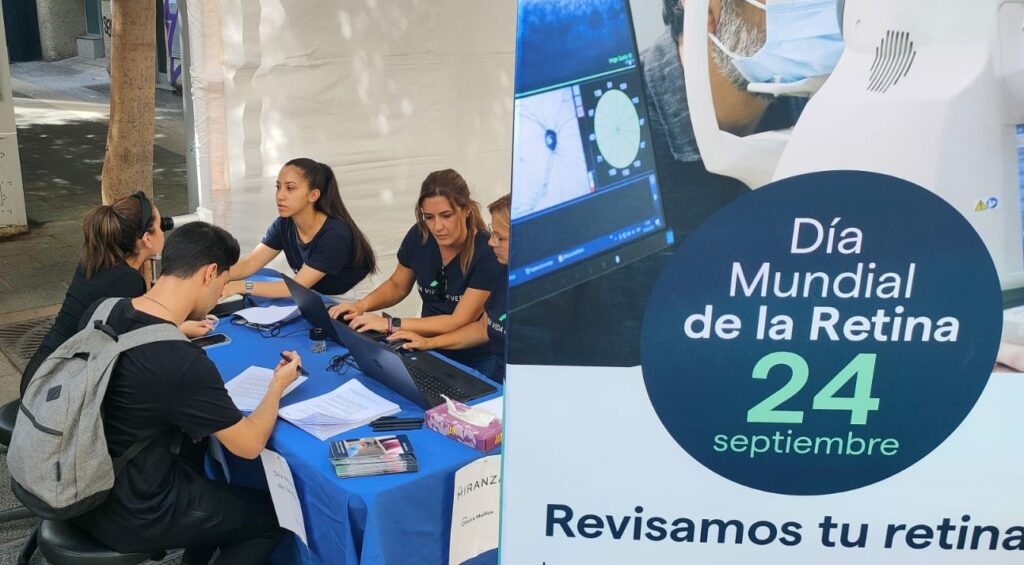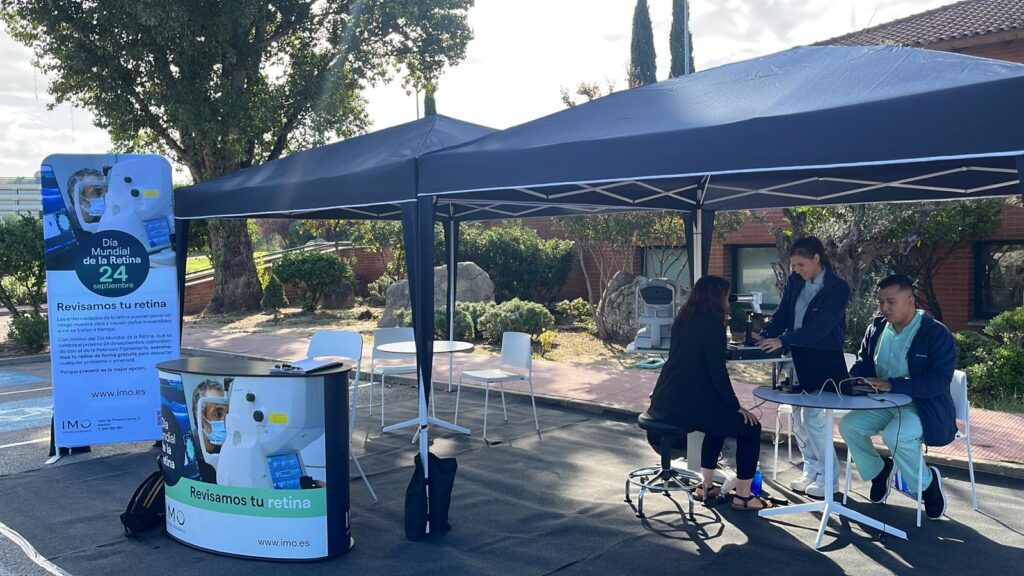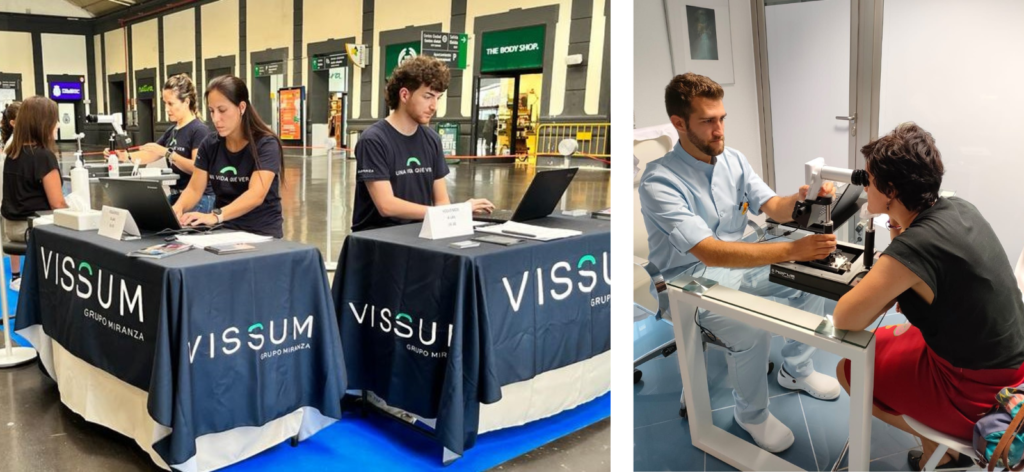
Nearly half of the 500 people screened in a campaign for the early detection of retinal problems may have a pathology
48% of the people taking part in the campaign for the early detection of retinal pathology carried out this week by Miranza teams are susceptible to suffering from or developing a retina-related pathology, mainly glaucoma (73% of patients with suspected pathology), age-related macular degeneration (AMD) (25%) and diabetic retinopathy (22%). Although glaucoma is not strictly speaking a retinal condition, it has also been included in this study, as it affects the optic nerve, which is the part of the retina that connects the eye to the brain. As far as AMD and diabetic retinopathy are concerned, they are two of the most widespread retinal diseases that cause the greatest loss of vision.
Eye history as the main risk factor
Among the people who could suffer from one of these pathologies, women outnumber men (57% of female patients compared to 43% of men), as well as patients of both sexes over 55 years of age (56%), which is not surprising, since retinal disease is closely linked to age and increases as the years go by.
Apart from age, risk factors that increase the likelihood of retinal disorders include a history of eye disease (refractive errors, cataracts, trauma, eye treatments, ophthalmic surgery and family history), high blood pressure and smoking. Among those with suspected pathology, 51% had a history of eye disease, while 15% were hypertensive and 13% smoked.

Commitment to prevention
Miranza has promoted this campaign for the early detection of retinal disorders on World Retina Day, which is held on Sunday, 24 September, as well as World Retinitis Pigmentosa Day. Through this action, early detection units from different Miranza clinics have made free screenings available to the public, inside and outside the centres, in Alicante, Barcelona, Benidorm, Bilbao, Madrid, Palma de Mallorca, San Sebastian, Santa Cruz de Tenerife and Seville, between 13 and 19 September.
The check-up consisted of a fundus examination by means of cutting-edge portable equipment and software that provides initial diagnostic guidance, using a system based on Artificial Intelligence. Based on this first result, ophthalmologists will guide patients with suspected pathology to carry out a more in-depth follow-up of their retina so that they can be diagnosed and treated in time.

The role of the retina
In this sense, Miranza’s retina experts emphasise the importance of attending eye check-ups, which allow for prevention, early diagnosis and treatment of retinal disorders as soon as necessary, while taking into account risk factors, such as age or family history.
Our experts also stress the need to lead a healthy lifestyle, which is associated with slower ageing and, therefore, with good eye health due to a better oxidative process of cells. To this end, it is important not to smoke, to eat enough fruits and vegetables and to avoid unprotected exposure to the sun.